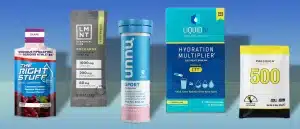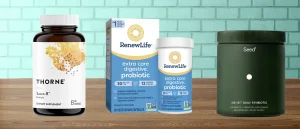The FDA Has a New Guide for Dietary Supplements. Here’s How to Use It.
Supplements promise to help you optimize your health and well-being. In search of said vitality, one CDC survey showed more than half of Americans use dietary supplements. If you’re one of the millions with a stash of pills and powders in your cabinet, you might not have even thought about the possible side effects or how they interact with other medications in your daily lineup. But the Food and Drug Administration (FDA) is finally shedding some light on the subject.
Information on supplements is limited, and manufacturers of supplements don’t have to carry out studies to confirm their products are safe or effective before putting them on the market. And you probably have questions. The FDA hopes to help clear up those questions with its new guide to help you make more informed decisions when considering new supplements.
What is the New FDA Guide?
The refreshed guide, “Supplement Your Knowledge” is a new initiative that aims to inform customers, educators, health care professionals, and influencers about vitamins, minerals, herbs, and other supplements. The guide includes downloadable resources, videos, and studies to help you make better choices.
How to Use the New FDA Guide
If you’re interested in a supplement, the FDA recommends you become an informed consumer, by learning how to use supplements and common ingredients, as well as staying up to date on what’s new with supplements.
Many supplements have risks and side effects when taken in combination with the medications you’re already taking. For example, Metformin is a diabetes drug that promises benefits far beyond the bounds of diabetes. But what you may not know about Metformin is that it can lead to B12 deficiency, which is why most doctors prescribe the two together, an essential detail you’d likely miss on your own.
That’s why the FDA recommends a check-in with your physician before green lighting any new supplements.
How to Talk to Your Doctor About Supplements
An appointment with your doctor can provide invaluable insight into a supplement you’re interested in, but a bout of white coat syndrome might leave you scrambling for the words to express how you’re feeling and what you need. Here’s a list of FDA-approved questions to ask your doctor at your next appointment:
- Is taking a dietary supplement important for my overall health?
- Am I taking the right product?
- Am I taking the right amount?
- Is there an amount or “upper limit” I should not go above?
- How long should I take a supplement?
- Are there any known side effects?
- Are there any foods, medicines (prescriptions or over-the-counter), or other dietary supplements I should avoid while taking this product?
- Are there any supplements I should avoid if I am scheduled for surgery or lab work?
Once you and your doctor have agreed upon a supplement and medication plan, the FDA created a worksheet to help you track your medications and supplements, doses, and any adverse reactions when they happen. With a solid action plan, you regain the power to maximize all of the amazing benefits supplements have to offer.










